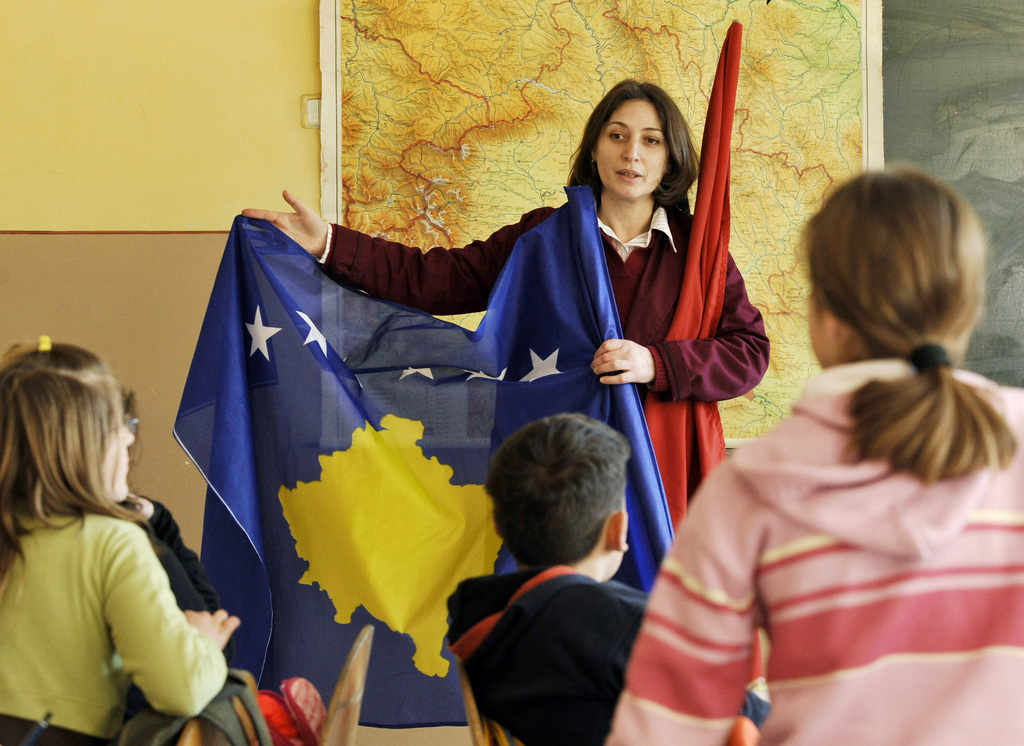
ICJ ruling supports Kosovo’s independence

Kosovo’s declaration of independence from Serbia did not breach international law, the International Court of Justice (ICJ) in The Hague has ruled.
With a vote of 10-4, the court found that international law does not forbid declarations of independence.
Pristina, the capital of Kosovo, greeted the news with joy and champagne.
“Serbia has received its answer from the ICJ and should now recognise our independence,” said Kosovo President Fatmir Sejdiu on Thursday.
Kosovo Prime Minister Hashim Thaci touted the ruling as a “historic victory” and “the best possible answer for the entire world”.
Though the court’s ruling is legally non-binding, Kosovo has described its sovereignty as irreversible.
Meanwhile, the Serbs firmly defended their position.
“Serbia will never recognise the unilaterally proclaimed independence of Kosovo,” as President Boris Tadic told reporters in the Serbian capital of Belgrade. “The government will now consider further steps”.
The decision could have significant implications for other separatist regions around the globe as well as for Serbia’s stalled march toward European Union membership. Meanwhile, it helps pave the way for Kosovo’s entry into the EU.
With about 100,000 to 150,000 Serbs living in Kosovo, Serbia has insisted that the declaration of independence was an illegal breach of human rights.
Others argue that in light of the genocide-like persecution, mere autonomous status for Kosovo within Serbia would hardly be possible.
Swiss support
The Swiss Foreign Ministry welcomes the ICJ ruling.
“We see it as a chance for all interested parties to begin a dialogue to answer the open questions related to the independence of Kosovo,” said the foreign ministry in a statement on Thursday.
In 2005, Switzerland was the first state to call for Kosovo independence. When it happened on February 17, 2008, the Swiss recognised the new republic ten days later and established diplomatic ties. The Swiss embassy in Pristina opened just a few weeks after that.
An estimated 170,000-200,000 Kosovar immigrants now live in Switzerland, making it one of the largest minority groups in Switzerland. Many came as political refugees.
With so many Kosovars living in Switzerland, the Swiss are especially interested in the situation and stability of the region.
Switzerland has been a major supporter to rebuild and develop Kosovo. According to information from the State Secretariat for Economic Affairs (Seco), Switzerland has poured at least SFr100 million into the region since 2008 to help with infrastructure projects, such as water and power lines, and programmes offering on-the-job training.
Switzerland has also dispatched experts to be part of a European mission to Kosovo charged with assisting and support the Kosovo authorities in the area of rule of law, specifically with the police, judiciary and customs systems.
International interest
Like Switzerland, the United States also responded favourably to the ruling.
“We call on all states to move beyond the issue of Kosovo’s status and engage constructively in support of peace and stability in the Balkans, and we call on those states that have not yet done so to recognise Kosovo,” said US Secretary of State Hillary Clinton.
Serbia’s close ally Russia criticised the ICJ decision.
“We will not accept the splitting of a country that is a member of the United Nations. On principle we consider Serbia a unified whole,” said Russian envoy to Nato Dmitry Rogozin, noting that the legal debates about Kosovo’s independence would continue.
Bosnian Serb Prime Minister Milorad Dodik also expressed his disappointment Thursday:
“This is a new humiliation of Serbia and a new message to the Serbs that politics of violence is sucessful and that politics of legal violence could help legalise issues that have been impossible so far.”
To be on the safe side, Nato-led troops braced for physical violence by increasing their presence in the Serb-controlled part of Mitrovica.
According to EU foreign affairs chief Catherine Ashton, the future of Serbia and Kosovo lies in the EU.
“Good neighbourly relations, regional cooperation and dialogue are the foundations on which the EU is built,” said Ashton in a statement. “The EU is therefore ready to facilitate a process of dialogue between Pristina and Belgrade.”
Kosovo’s independence is currently recognised by 69 countries; it is expected that Thursday’s ICJ ruling will lead more nations to do so.
swissinfo.ch and agencies
12th century: Kosovo sits at the heart of a Serbian empire.
1389: Serbs lose battle of Kosovo Polje to Ottoman Turks. Ethnic balance shifts toward Muslim and Albanian over the centuries.
1913: Serbia regains Kosovo after Balkan wars.
1974: Kosovo becomes an “autonomous province” of Serbia in new Yugoslav Constitution.
1989: Serbian President Slobodan Milosevic seeks to reduce Kosovo’s autonomy.
1997: Kosovo Liberation Army (KLA) emerges to fight a guerrilla war against Serb forces.
1998: Milosevic’s forces brutally repress the KLA and its supporters. Thousands of Albanians die.
1999:
June 10: Nato strikes force Belgrade to withdraw from Kosovo.
June 11: Serbs and other non-Albanians flee fearing reprisals.
2005:
November: Kosovo parliament pushes for independence. Switzerland becomes first country in the world to call for it.
2007:
March 26: UN Security Council, Americans and Europeans support plan for independent Kosovo with international supervision. Russia and Serbia object.
2008:
Feb. 17: Kosovo declares independence. Serbia and Russia reject it. Switzerland among first to recognise it. Serbs recall ambassador to Bern.
October: Serbia asks International Court of Justice (ICJ) to rule on legality of Kosovo independence.
2009:
June 4: Kosovo joins International Monetary Fund (IMF) and World Bank.
December 1: ICJ opens hearings on Kosovo independence.
2010:
July 22: Court rules that the secession did not violate international law.

In compliance with the JTI standards
More: SWI swissinfo.ch certified by the Journalism Trust Initiative




























You can find an overview of ongoing debates with our journalists here . Please join us!
If you want to start a conversation about a topic raised in this article or want to report factual errors, email us at english@swissinfo.ch.